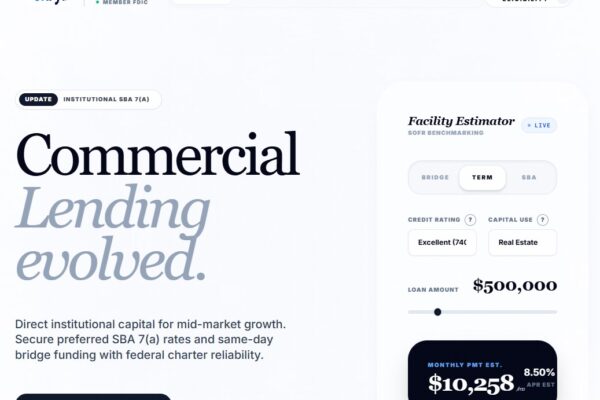Tidex.com Scam Review — A Full Investigation
Story Snapshot: What It Feels Like to Be a User
Picture this: you sign up on Tidex.com. The site looks good—clean layout, lots of crypto pairs to trade, staking options, maybe some promotions. You deposit a modest amount of crypto or fiat. Things seem fine at first. You make some trades. You even request a withdrawal.
Then: silence. Your withdrawal request is delayed. Support stops responding. Maybe you’re told there’s a tax or “AML check” or that some coin/token is delisted. Your funds are locked. You ask why. You get vague excuses. You feel like you’re being strung along.
That sort of story is repeated many times in reviews and forums related to Tidex. Let’s see what’s working (if anything) versus what seems deeply problematic.
What Tidex Claims & What It Discloses
Before assessing risk, it’s fair to see what the platform says it does and its disclaimers:
-
Services Offered: Tidex presented itself as a cryptocurrency exchange. Users mention trading many crypto pairs, staking, sometimes lending/locking of assets, token investments.
-
Risk Disclosures: The “Risks” section on Tidex’s site admits that users may lose funds if there are software flaws, system failures, or security problems. It states that there is no guarantee that wallets or smart contracts or other blockchain tech will be free from vulnerabilities, and that funds might not always be accessible due to a variety of causes. It also warns about user credential safety and possible user interface confusion.
-
Operating Info: Company names cited include “TIDEX TECHNOLOGIES LTD” and “UAB Tidex Tech,” with an address in Vilnius, Lithuania. There is some contact email info.
So at least there is some admission of risk and a claim of having a registration in some form in Lithuania. But what matters is whether these claims hold up and how the experience matches for users.
What Users & Independent Reviewers Say
There is a large amount of user feedback and independent review content, and many of it is very strongly negative. Key recurring themes:
-
Withdrawal Problems
-
Many users report that they cannot withdraw crypto or fiat. Some say withdrawal requests stay “pending” for weeks.
-
Some mention that a token or coin (for example DAI in one case) was disabled for trading/withdrawals without notice, trapping user funds.
-
Others say that after their account “grew” or profits appeared, when they tried to withdraw those profits (or even principal), the account was blocked, or extra fees/taxes demanded.
-
-
Unresponsive or Poor Support / Silent Periods
-
A lot of complaints about customer service being non-existent, slow replies, or giving generic excuses (“waiting for verification,” “AML checks,” etc.).
-
Some users say the platform simply stops responding once money is deposited and withdrawal is requested.
-
-
Accounts Being Frozen / Blocked
-
Some accounts are reportedly locked without notice when withdrawal requested.
-
Some users say their account status is changed suddenly (e.g., they are told they must go through more verification or pay extra “taxes” or “fees”).
-
-
Vague or Misleading Policies
-
Users say terms regarding withdrawals, fees, and verification are not clearly stated or are changed without notice.
-
Sometimes deposit is allowed, but when you try to withdraw, new requirements appear.
-
-
Regulatory / Oversight Warnings
-
Tidex is described by many reviewers as unregulated, or at least not under oversight by major regulators (e.g., no visible licensing in key jurisdictions like UK, US, Australia).
-
In some places (for example Ontario, Canada) the site has been blacklisted or listed in warnings by securities authorities or similar.
-
-
Platform Operational Issues & Inactivity
-
Some sources say that Tidex has ceased crypto trading operations and become inaccessible.
-
Others say that its website is down, or that the platform is “inactive” per tracking sites like CoinMarketCap.
-
-
Misleading Promises or Marketing
-
Claims of high returns, staking / stakes / interest / staking yields or return promises may be overstated.
-
Testimonials / reviews are alleged by users to be fake or manipulative.
-
-
Trust Score / Reputation Metrics
-
Multiple sites that aggregate user reviews (Trustpilot, etc.) show a high proportion of 1-star reviews.
-
On Trustpilot, reviews are overwhelmingly negative, with many complaints about locked funds, inability to withdraw, broken support.
-
Scam detection sites give Tidex very low trust scores.
-
Red Flags & Pattern Summary
Putting the above together, here are the main red-flags that repeatedly crop up in relation to Tidex:
| Red Flag | Observed? |
|---|---|
| Unclear or unverified regulation / licensing | Yes |
| Withdrawal issues: blocked / delayed / denied | Yes |
| Poor / non-existent customer service | Yes |
| Sudden policy or functionality changes (delisting tokens, restricting withdrawals) | Yes |
| Use of vague or misleading marketing / promises | Yes |
| Account freezes / requirements for extra payments | Yes |
| Website inactivity / service shutdown | Yes, or at least occasional reports |
| Lack of transparency on ownership, exact operating jurisdiction | Partial — some info claimed, but not strong verification |
These are not isolated complaints — many different users in different places report similar issues.
What Tidex’s Own Risk Disclosures Say (and Don’t Say)
Tidex does have some disclosures:
-
Admits risk of software flaws and blockchain or smart contract vulnerability.
-
Warns that funds may not always be safe or accessible under certain circumstances.
-
States that credentials/security are user’s responsibility.
However, what it does not convincingly provide:
-
Clear regulatory/licensing documentation in major jurisdictions.
-
Transparent real proof of audits, proof of reserves, or public details of how funds are held.
-
Clear, unambiguous terms for withdrawals (time frames, fees, with no surprise conditions).
-
Strong evidence that past withdrawal problems have been resolved.
So there is acknowledgment of risk, but the disclosures seem insufficient given the volume of user complaints.
Mixed / Ambiguous Signals
While much is negative, there are a few things that complicate a total “sure scam” verdict (by some people’s measurements):
-
Some users report positive experiences in the past—making small trades, depositing and withdrawing small amounts without issue (or before some of the more severe complaints appeared).
-
The UI (user interface) is often described as clean; some features (staking, token listings, pairs) are appealing and functional for a period.
-
The domain for Tidex.com is quite old (registered in 1996, though age of domain does not imply trust by itself).
-
For a time, it has been listed on crypto tracking websites and exchanges directories, which may give a veneer of legitimacy.
These signals do not outweigh the negative ones, but they show that not all interactions necessarily end badly (though many reportedly do).
Current Status & Functionality
As of the latest reports:
-
Some sources say the exchange has ceased operations in terms of crypto trading.
-
The website has reportedly become inaccessible in certain instances, or functionality is limited.
-
Users say that some coins or tokens are delisted or made unwithdrawable.
-
Many users say that even after providing verification documents, withdrawals are still blocked under new or changing conditions.
Overall Risk Level
Weighing all the evidence:
-
The risk is very high.
-
Tidex.com appears to be an exchange with many real users who are experiencing serious issues.
-
The lack of strong regulatory oversight, combined with repeated withdrawal problems, account locking, and changing policies, makes it unsafe in practice for many users.
Pros vs Cons Snapshot
Here’s a table summarizing what seems appealing vs what actually appears risky based on user feedback and review sites:
| Pros (What Tidex Offers / What Seems Attractive) | Cons (What Many Users Report / What Seems Risky) |
|---|---|
| Many crypto trading pairs available | Withdrawal delays, funds locked, requests ignored |
| Features like staking, token listings | Sudden delisting or disabling of some assets without warning |
| Clean UI and accessible deposit functionality | Accounts blocked, changed policies, ambiguous fees/taxes |
| Risk disclosures present (software risks, etc.) | No clear licensing / regulatory proof; oversight weak |
| Domain has some age, visible presence on trackers | Many negative reviews, perceptions of fraud, site outages/inactivity |
Frequently Asked Questions
Q: Is Tidex regulated by any major financial regulator?
A: No convincing evidence exists that Tidex is overseen by major regulators (e.g. FCA, SEC, ASIC). Many review sites say it appears to be unregulated, which leaves users exposed.
Q: Do people normally get their funds out?
A: Many report that while small amounts or initial small withdrawals might work, larger sums, profits, or certain tokens become blocked or delayed. Some say withdrawals are never completed.
Q: Are the policies clearly stated before depositing?
A: Not sufficiently. Many users claim that policies are vague; conditions change; fees, taxes, or “AML / verification” requirements are added after deposit.
Q: Does age of domain or good UX mean it’s safer?
A: Not necessarily. While a long-standing domain and good interface may instill trust, they do not replace regulatory protection, transparent accountability, or consistent user reports of successful transactions. Many platforms that look good still have serious problems.
Final Verdict
Based on all the available information:
-
Tidex.com displays many of the warning signs typical of exchanges or platforms that become difficult for users to trust with significant funds.
-
The repeated reports of locked accounts, inability to withdraw, unresponsive support, changing or hidden policies, and lack of oversight suggest the platform operates at high risk to users.
-
There is enough evidence to consider Tidex unsafe or potentially fraudulent, especially for users considering depositing large amounts or expecting reliable access to their funds.
Recommendation: Exercise extreme caution with Tidex.com. If using it at all, only risk small amounts you can afford to lose, verify everything in writing, and monitor closely for signs of trouble.
Report Tidex.com Scam and Recover Your Funds
If you have lost money to Tidex.com Scam, it’s important to take action immediately. Report the scam to Jayen-consulting.com, a trusted platform that assists victims in recovering their stolen funds. The sooner you act, the better your chances of reclaiming your money and holding these fraudsters accountable.
Scam brokers like Tidex.com continue to target unsuspecting investors. Stay informed, avoid unregulated platforms, and report scams to protect yourself and others from financial fraud.
Stay smart. Stay safe.






